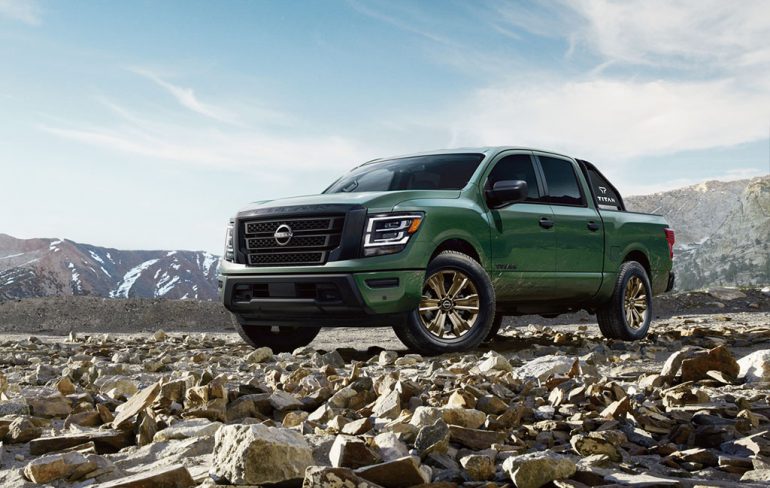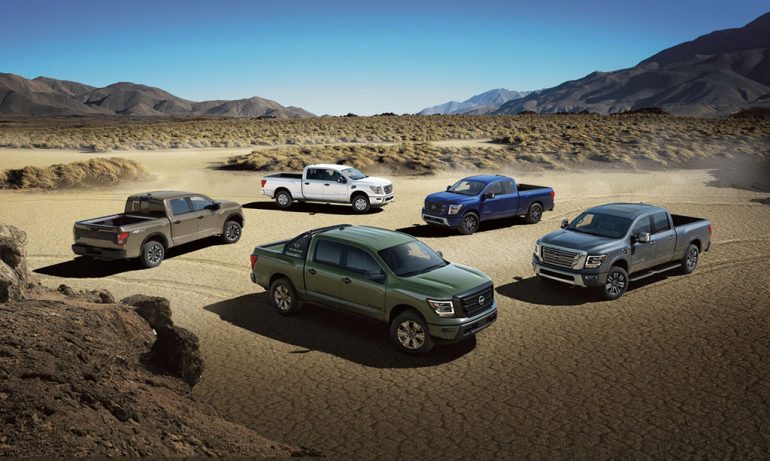
While some industry observers had not openly speculated about the continuation of the full-size Titan pickup, we had our suspicions of the Titan reaching its demise very soon for a few reasons. This sense of uncertainty has been further accentuated by the Titan’s diminishing presence over the past years. In a significant move, Nissan decided to withdraw the truck from the Canadian market after the 2021 model year, relinquishing its position to Ford’s dominant F-Series pickups, which have reigned as the top-selling trucks in Canada since 2009.
While Nissan released pricing for the 2024 Titan starting at $45,770, which is a small $120 bump from last year’s model, the Titan’s sales trajectory in the United States has been marked by fluctuation. It enjoyed its best year in terms of sales back in 2005; however, the subsequent years saw a decline, with sales failing to surpass the 25,000 mark between 2009 and 2016. A rebound was witnessed after the introduction of the second-generation Titan in 2017, with sales crossing the 50,000 threshold. Unfortunately, this resurgence was short-lived, as figures have gradually dwindled since then, culminating in just 15,064 units sold throughout 2022.

The news surrounding the Titan’s discontinuation gains additional credibility from an insider source who provided information to Carscoops. This source revealed an internal company document that indicates the impending end of production at Nissan’s Canton plant in Mississippi, where the Titan is currently manufactured.
Responding to inquiries about this development, Nissan issued a statement clarifying their plans. The company affirmed that production of the Nissan Titan is set to cease in the summer of 2024 at the Canton plant, aligning with Nissan’s broader strategy for an electrified future outlined in their Ambition 2030 vision. This strategy entails transforming the Canton plant into a hub for the latest electric vehicle manufacturing technologies, with plans to introduce two all-new, all-electric vehicles. Notably, Nissan emphasized that this transition would not result in workforce reductions. The statement also expressed gratitude towards the various stakeholders who contributed to the Titan’s legacy, including dealers, customers, and employees.
This development serves as a reminder of the formidable challenges that automakers face when attempting to make a mark in the highly competitive full-size truck market within the United States. Nissan initially aimed for ambitious goals, targeting an annual sales figure of 100,000 units for the Titan upon its launch. However, achieving such numbers proved to be a demanding endeavor. This is in stark contrast to the Tundra pickup, produced by the considerably larger and more resourceful Toyota Motor Corporation, which has found itself in a similar sales range. It’s speculated that with additional development budget and focus, the Titan might have been able to establish a stronger foothold in the market.

Mike Floyd is a finance executive by trade and a car enthusiast at heart. As a CFO with a keen eye for detail and strategy, Mike brings his analytical mindset to the automotive world, uncovering fresh insights and unique perspectives that go beyond the surface. His passion for cars—especially his favorite, the Porsche 911, fuels his contributions to Automotive Addicts, where he blends a love for performance and design with his professional precision. Whether he’s breaking down industry trends or spotlighting emerging innovations, Mike helps keep the site both sharp and forward-thinking.